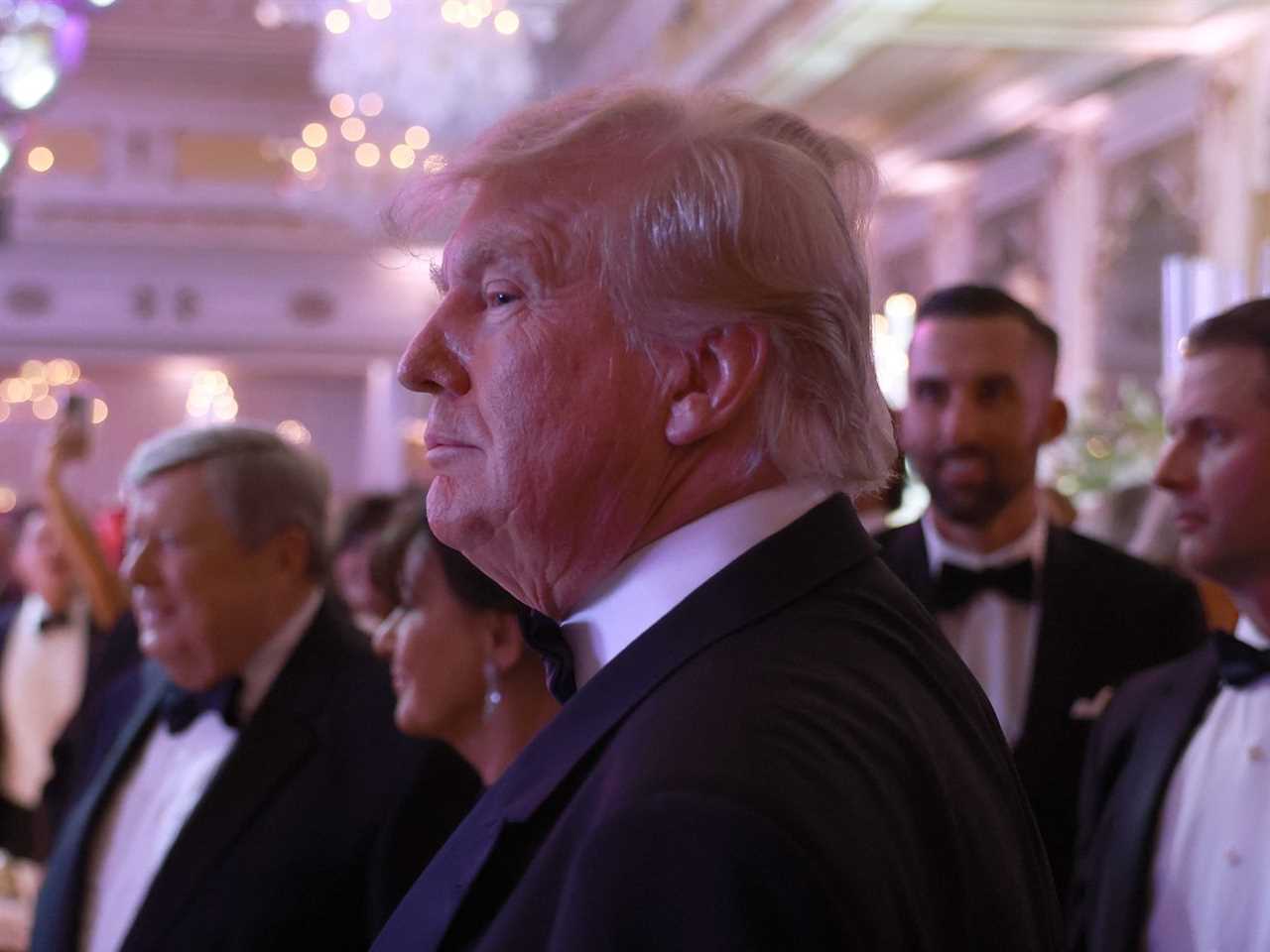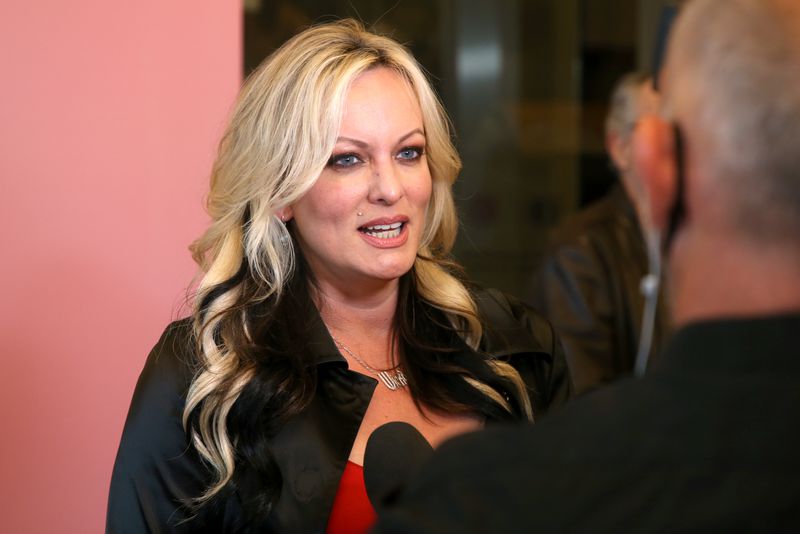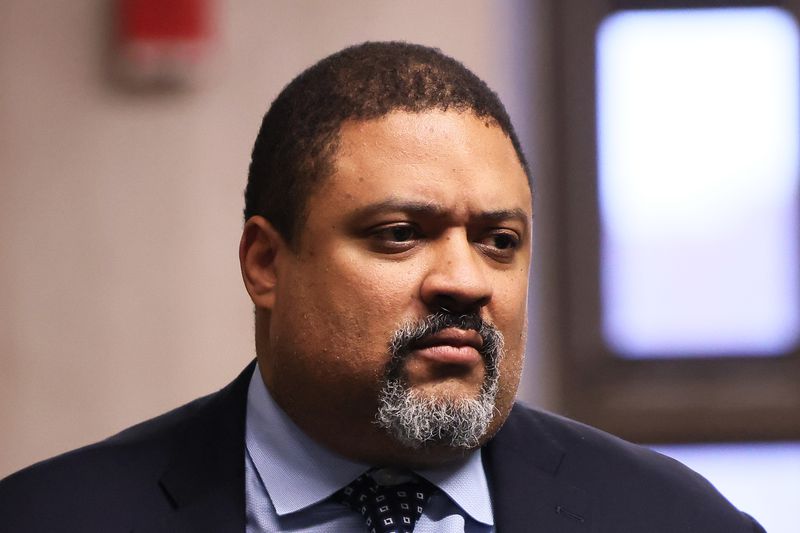
New York prosecutors are pursuing charges related to the Stormy Daniels payment. But how strong is their case?
Donald Trump has become the first-ever former US president to face criminal charges.
On Tuesday, the former president appeared in court to plead not guilty to 34 felony counts of falsifying business records, facing an indictment brought by Manhattan District Attorney Alvin Bragg. The charges all stemmed from a five-year-old scandal: the $130,000 hush money payment to Stormy Daniels.
Trump’s longtime lawyer and fixer Michael Cohen paid Daniels that money shortly before the 2016 election. But in 2017, Trump and his company, the Trump Organization, repaid Cohen in installments, logging those repayments as legal fees for services performed that year. Bragg alleges that characterization is false and illegal, violating the state’s business records laws. You can read his indictment and statement of facts at the links provided.
Bragg also alleges that these business records were falsified “to conceal criminal conduct” — which allows him to charge all these counts as felonies, rather than misdemeanors. In a press conference, Bragg cited the federal cap on campaign contributions and a state law against conspiring to promote a candidacy by unlawful means.
You may be thinking: “Stormy Daniels ... That’s a name I’ve not heard in a long time.” Indeed.
The world first learned of Daniels in 2018, when the Wall Street Journal broke news that Cohen had arranged the payment, made shortly before the 2016 election so the adult film actress wouldn’t go public with her claim to have had an affair with Trump. Cohen, already under investigators’ scrutiny, eventually pleaded guilty in August 2018 to violating federal campaign finance laws with that payment and others, in charging documents that famously identified Trump as “Individual-1.”
Cohen claimed he’d made the illegal payment at Trump’s direction, so there was much speculation about whether Trump was on the hook for violating campaign finance law too. But instead, the case fizzled out. A federal investigation was closed in 2019, and the New York district attorney’s office looked into it but seemed to lose interest in favor of pursuing a sprawling probe of Trump’s business dealings.
So why is it back now, in 2023?
Only Bragg truly knows the answer to that. But some context is that when Bragg first took office early last year, he put the brakes on the Trump business probe — a decision that spurred two prosecutors to resign and was intensely criticized.
After this backlash, Bragg rethought his earlier hesitancy, and he’s filed charges based on what the Times reports had become known in his office as the “zombie theory” — of pursuing charges based on the hush money.
But indicting Trump was the easy part. Real challenges lie ahead, particularly because Bragg’s legal reasoning regarding the felony enhancements is controversial and sure to be challenged by Trump in court.
It’s been a while. What was the hush money scandal about, again?

Phillip Faraone/Getty Images
In October 2016 — weeks before the presidential election, as Trump was being publicly besieged by a series of sexual harassment or assault accusations from many different women — adult film actress Stormy Daniels was preparing to come forward with her own story about a consensual sexual encounter she’d had with Trump in 2006. But, her representatives let it be known, she’d also be willing to accept payment for her silence.
Earlier in the campaign, Cohen had worked with American Media Inc. — the parent company of the National Enquirer — to “catch and kill” unflattering stories about Trump, in which AMI would pay accusers for the exclusive rights to their story, and then not publish those stories. AMI executives were involved in the discussions about paying Daniels too, but they ultimately balked — so Cohen had to take care of it himself.
Cohen set up a shell company, Essential Consultants, and sent $130,000 to Daniels’s lawyer on October 27. Later, after Trump won the election, he paid Cohen back in installments in 2017.
The problem, federal prosecutors in the Southern District of New York later alleged, was that this violated campaign finance law. They argued that since this money was spent to help Trump win the election, it should have been disclosed as campaign spending and subject to legal limits on donations. Cohen pleaded guilty to this charge as part of a larger plea deal, so the case was never tested in front of a jury.
Yet prosecutors’ theory wasn’t universally accepted. The New York Times described it as a “somewhat novel use of campaign finance law,” and Attorney General Bill Barr sharply questioned it after he took office. In any case, SDNY prosecutors told a judge in July 2019 the case was closed, in part because Trump was the sitting president and per Justice Department policy he could not be indicted.
As Trump was about to leave office in 2021, though, SDNY prosecutors revisited the case, discussing whether they should reopen it when he no longer had presidential immunity. According to CNN legal analyst Elie Honig’s recent book Untouchable, prosecutors were split on the strength of the case.
“Some believed the evidence was more than enough to charge in an ordinary case, while others thought it was still a close call, though still chargeable,” Honig writes, continuing, “Even if the evidence was sufficient to support a charge, it also wasn’t a slam-dunk case in the majority view.”
He adds that some on the team believed the hush money scheme was “serious, but not the end of the world,” and that it seemed “somehow trivial and outdated” compared to his later acts like trying to overturn Joe Biden’s election win. So ultimately, SDNY decided to let it lie.
So how did this move to the Manhattan district attorney?

Michael M. Santiago/Getty Images
After news became public that SDNY had dropped the hush money case in 2019, then-Manhattan district attorney Cy Vance picked it up, bringing Cohen in for interviews and seeking Trump’s tax returns.
But the investigation soon sprawled outward.
First there was the real estate valuations case. Vance’s prosecutors developed a theory, backed by public evidence and Cohen’s testimony, that Trump overvalued certain properties when he sought loans and insurance policies, but undervalued those assets for tax purposes, so he’d owe less in property taxes. They explored charges over tax fraud, bank fraud, and insurance fraud.
But the problem was proving Trump knew his company was breaking the law, since he could have argued that everything his company did was approved by his chief financial officer and legal team, who were experts in such matters. So prosecutors zeroed in on that CFO, Allen Weisselberg, pressuring him for months to flip on Trump. Weisselberg did not do so.
So next came the “fringe benefits” case. In July 2021, Vance’s office charged Weisselberg and several Trump business entities with tax fraud. The company had paid apartment and car leases for Weisselberg and private school tuition for his grandchildren, without subjecting it to taxes. Trump himself was not charged, and the maximum penalties for Trump’s company were relatively small, so this wasn’t all that threatening a case.
With that trial pending, Vance left office, and Bragg, the newly elected district attorney, inherited the Trump probes in early 2022. After being briefed on the real estate valuations case, he reportedly wasn’t impressed. Per the New York Times, Bragg told the two lead prosecutors that he had doubts about moving forward with the case, and paused grand jury activity. Those two lead prosecutors resigned in February, and one, Mark Pomerantz, recently released a book giving his account of what happened. (Ankush Khardori wrote a helpful assessment of Pomerantz’s claims for New York magazine.)
Bragg, elected as a criminal justice reformer, then faced intense criticism in the media and from Democrats for being too lenient toward Trump. He said little at first, but by April he said the real estate valuations case was still moving forward. The fringe benefits case, meanwhile, was still heading for trial, and in August, Weisselberg agreed to change his plea to guilty (though he still didn’t flip on Trump, and was sentenced to five months in jail). Trump’s businesses were then convicted at the trial, and sentenced to pay a $1.6 million fine.
And at some point last year, Bragg’s office turned back to where the Manhattan DA’s investigation all started: the hush money. He brought Cohen and other witnesses back in for testimony, built a case, and got a grand jury to indict Trump last week.
Why was Trump arrested, and what was he charged with?
Trump faces 34 counts of falsifying business records. That’s because, when the Trump Organization reimbursed Cohen for the hush money payment to Daniels in 2017, they logged the payments as legal expenses — but Cohen was acting as a bagman in this case, not an attorney.
The 34 counts come from each time a false entry claiming legal expenses involving the Cohen payments was logged by the Trump Organization, including invoices, ledger entries, and checks logged throughout 2011.
Ordinarily, this would be a misdemeanor business records case. But Bragg is arguing that these false business records were created to cover up other crimes — which lets him charge all 34 counts as felonies.
Bragg’s indictment doesn’t specifically name which other crimes justify these felony enhancements. He said at Tuesday’s press conference that he isn’t required to do that yet. But his statement of facts alludes to three possibilities.
1) New York state election law makes it a crime to conspire to promote a candidacy by unlawful means. However, Trump was a candidate for federal, not state office, and he will likely challenge this to argue that state law does not govern federal campaigns.
2) Federal election law caps the amount of money that can be contributed to a candidate’s campaign. In 2018, Cohen pleaded guilty to violating federal campaign finance law in making the hush money payment — federal prosecutors argued that the payment to Daniels effectively amounted to a big campaign donation to Trump, though that theory isn’t universally accepted. One problem, though, is that Bragg is a state prosecutor without federal authority.
3) New York state tax law may be another issue, because the Trump Organization repaid Cohen double what he’d paid Daniels, so Cohen could characterize it as income and pay half of it in taxes.
Still, the felony enhancements are not exactly well-founded in precedent. “The case against the former president hinges on an untested and therefore risky legal theory involving a complex interplay of laws, all amounting to a low-level felony,” three Times reporters wrote earlier this year. And Fordham University law professor Jed Shugerman tweeted that Bragg’s refusal to specify which other crimes justified the felony enhancements was “an embarrassment to the rule of law.”
So Trump is sure to challenge Bragg’s reasoning in court long before he gets to trial, and the outcome of those challenges will determine whether this case stands — or collapses.
Update, April 4, 5:10 pm ET: This article was originally published on January 31 and has been updated multiple times to reflect new developments in the case and Trump’s indictment.
----------------------------------------
By: Andrew Prokop
Title: Donald Trump has been indicted. The hush money case against him, explained.
Sourced From: www.vox.com/policy-and-politics/2023/1/31/23579526/trump-arrested-indictment-stormy-daniels-felony
Published Date: Tue, 04 Apr 2023 22:11:17 +0000






